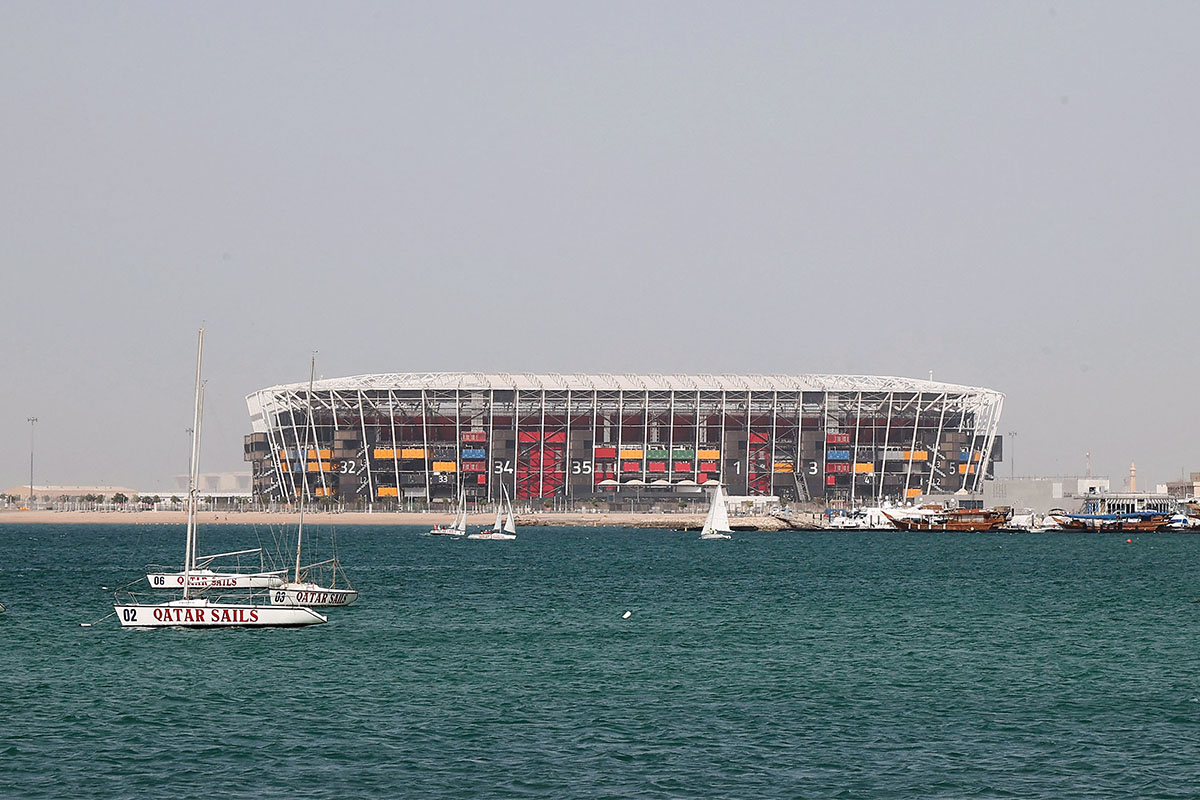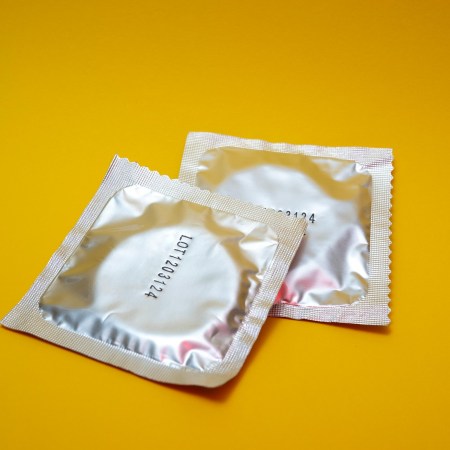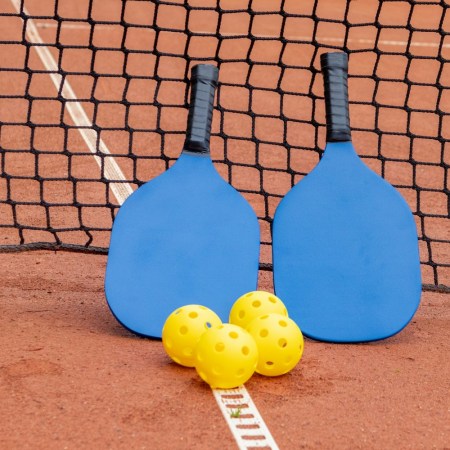According to a recent report by The Athletic, protesters at the upcoming 2022 World Cup in Qatar could be sentenced to a maximum of five years in prison and face fines up to 100,000 Qatari riyals (a sum of about $25,000). This thanks to the purposely vague verbiage of a law passed in early 2020, which Amnesty International has declared “as an attack on freedom of expression…[that] could silence peaceful protest.”
It reads: “Anyone who broadcasts, publishes, or republishes false or biased rumours, statements, or news, or inflammatory propaganda, domestically or abroad, with the intent to harm national interests, stir up public opinion, or infringe on the social system or the public system of the state.”
There are obvious, objectionable issues for any athlete traveling to Qatar this November. Over the last decade, the state has constructed eight different stadiums, through a twisted, modern form of indentured servitude, on the backs of impoverished migrants from Bangladesh, India, Nepal, Pakistan and Sri Lanka. An astonishing 6,500 workers have died. Meanwhile, 60% of Qatar’s GDP is fueled by oil and gas exports; the state’s worked with FIFA to bill the World Cup as a “carbon-neutral” tournament, but research has revealed that the carbon offsets “have a low level of environmental integrity, meaning they are unlikely to benefit the climate.”
In other words: it’s scary stuff all around, and it’s practically a guarantee that foreign nationals will stay quiet this fall. (Unsurprisingly, FIFA has stopped far short of guaranteeing the safety of protesters.) It’s also a grim reminder, in a week that saw the launch of the Saudi Arabian Public Investment Fund’s LIV Golf, that “sportswashing” is alive and well across a variety of sports.
The buzzy term has been all over Google the last few days, as the golf world reckons with perhaps the biggest shake-up in its long history: Phil Mickelson, Dustin Johnson, Talor Gooch, Louis Oosthuizen, Kevin Na, Sergio Garcia, Martin Kaymer have all jumped ship for LIV, with Bryson DeChambeau, Rickie Fowler and Patrick Reed to follow. Most have issued comments on the excitement of an opportunity to grow the game, but it’s well-reported at this point that the Saudi crown has offered players extremely lucrative contracts. Greg Norman, the league’s CEO, claimed earlier this week that Tiger Woods turned down a deal in the “high nine figures” to join LIV.
Mickelson managed to secure a low nine-figure contract from LIV ($200 million), which should help assuage his apparent massive gambling debts, but has drawn significant criticism in light of his recent, candid remarks on Saudi Arabia. This past February, his biographer Alan Shupnick published a book excerpt in which Mickelson addressed the murder of journalist Jamal Khashoggi, called the crown’s human rights record “horrible” and declared the Saudis “scary motherfuckers.”
Mickelson deflected and stammered through an awkward 30-minute interview earlier this week, ahead of his first tournament with LIV Golf, in London, while yesterday, Shupnick was actually barred by LIV security from reaching Mickelson’s press bay. Shupnick texted Norman about the incident, who denied any knowledge. But Shupnick later found a photo where Norman was standing in the background, hands in his pockets, watching it all play out.
The online outrage for LIV is justified and then some. It’s encouraging to see how many reporters, golf fans and professional peers are uncomfortable with this launch. But if we’re going to acknowledge and grapple with the concept of “sportswashing” in this arena, let’s not remain selectively permeable across other realms of the sporting world. We knew as early as spring of 2013 how bad Qatar was going to get. Recent headlines should not be a surprise. What will it take for governing bodies and corporate sponsors to stop the reputation laundering of violent, single-party states?
It’s a charged question, and the answer would amount to no slight shift in attitude. Sportswashing is a tradition as old and storied as anything else in sports.
Remember: Hitler hosted the Olympics. Mussolini hosted a World Cup. “The Rumble in the Jungle” was held in dictator-controlled Zaire. Formula One has raced Grand Prixes in 16 locations with shocking human rights records, most recently in Abu Dhabi, Azerbaijan, Saudia Arabia and Qatar. (Here’s Lewis Hamilton shaking Vladimir Putin’s hand.) South Africa operated global rugby tours for decades in the apartheid era. World football franchises have long accepted sponsors and approved buyers from dubious corporations and governments (e.g. shirts that read “Etihad Airways” or “Visit Rwanda,” or the Saudi Arabia Public Investment Fund buying English Premier League club Newcastle United F.C. late last year). Brazil, China and Russia have comprised half of the last eight Olympic Games. NBA owners have invested $10 billion in China.
It calls to mind that Michael Corleone quote, from The Godfather II: “We are all part of the same hypocrisy.” It’s true. Sports are inherently political; the world’s richest, most deceptive people understand this. Sports are a reliable form of soft power. Whenever any of us objects, these leaders, who can be found both home and abroad, are counting on the Twitter warriors — their millions of unwitting minions — to hop-scotch around the internet and demand that “politics be kept out of sports.” When they don’t get that sort of ignorant, credulous assistance, they’ll settle for passive participation, which is the camp most of us fall into, anyway.
Similar to watching football every Sunday even though we know retired players are shooting themselves in the chest to preserve their brains for science, we’ll sit down to watch the Olympics and the World Cup. Maybe, hopefully, the LIV is a tipping point. But history suggests otherwise. Boycotts come and go. More money always flows in. Sportswashing or not, nothing can keep us from our sports.
The Charge will help you move better, think clearer and stay in the game longer. Subscribe to our wellness newsletter today.


















